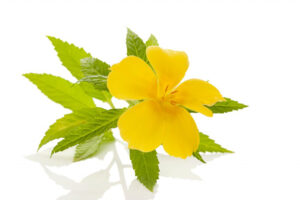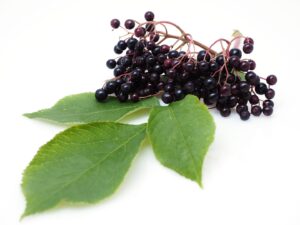
Improving Libido and Male Function, Naturally
‘Issues with male function’ denotes a variety of problems, including those related to impotence and lack of desire. Statistical data
In recent decades, women throughout the world have turned to traditional medicine to balance hormonal function and to treat common female health issues.
Medicinal plants have been used since ancient times as a natural solution for common gynecological issues. These herbs have a beneficial effect on the complete female reproductive system, including a woman’s libido. Traditional medicine uses these herbs to improve the chances of conceiving as part of treatment for fertility challenges, to treat hormonal imbalance, and to help regulate the menstrual cycle.
According to holistic medicine, our bodies have self-healing mechanisms. The cells of the body contain all the knowledge necessary for toxin removal, energy production, and tissue regeneration.
The female reproductive system is considered a physical and energetic system that responds to environmental conditions and is affected by nutrition, sleep, stress levels, and emotions. Any type of stress or imbalance may affect the normal functioning of this system, and may manifest itself in symptoms ranging from period pain to fertility challenges. Sometimes, it may be enough to reduce stress levels in order to activate the built-in potential of internal health. Other times, herbal formulas may be used to gently restore the body’s balance.
Although it is not certain that natural treatment for fertility challenges will always
be successful, herbal remedies can still contribute a lot to a woman’s general health and, most importantly, build the foundations for a normal and balanced functioning of the reproductive system. Natural holistic practitioners have reported many therapeutic successes in diverse fertility challenges.
Fertility challenges
Difficulty conceiving can be related to countless complex factors: biological, nutritional, environmental, emotional and more. The process of diagnosing a fertility problem can be so complex, that it can also cause additional emotional tensions.
There are many physical causes of fertility difficulty, including: hormone imbalance, gynecological issues due to scar tissue in the reproductive system, endometriosis, polycystic ovaries, antibody production against sperm, various sexual diseases, or inadequate or excessive body weight. Yet, in 10–30% of cases, the cause of the fertility challenges are unknown.
The main goal of natural treatment is to improve the general health of the woman and thereby heal the cause or specific difficulty.
In the world of traditional medicine, plant extracts have shown significant success in helping couples trying to get pregnant. In Chinese, Indian and Western herbal medicine, these herbal formulas contain extensive complexes of herbal active ingredients that work together in synergy have also been used with much success.
In the last decades, studies have shown that diverse plant components may contribute to the regulation of female hormonal levels, promote regular ovulation, improve blood flow to the reproductive organs, and may also improve the ovarian reserve.
Professional literature regarding traditional herbal medicine discusses the different categories of herbs that support fertility. Although there may be overlaps between categories, each category serves a different purpose in nourishing the female reproductive system. This is why herbal formulas contain different plant extracts from several categories, so they work to restore the balance of the female system.
Herbal plants are divided into categories as follows:
Herbal medicine approaches that support common issues of the female reproductive system.
The general information provided below regarding medicinal plants for fertility is based on traditional herbal medicine, as represented in professional literature. It does not replace consultation with your health practitioner or personalized medical treatment.
Low estrogen levels may be linked to low body weight, vitamin A deficiency, extensive use of antibiotics (which destroy the friendly bacteria in the gut, which are important for estrogen circulation), excessive physical activity and/or smoking.
Increasing the consumption of legumes containing phytoestrogens (plant estrogens), specifically soy, may increase estrogen levels in the body.
Low progesterone levels are linked to a shorter ovulation phase and may even prevent the ovarian follicle from maturing and releasing an egg.
Endometriosis is a chronic inflammatory condition that affects fertility. Herbalists in Israel and around the world have reported success helping patients with endometriosis by combining hormone balancing herbs with ‘blood movers’ and antioxidants..
Polycystic ovaries is a condition in which cysts on the ovaries cause irregular ovulation or the absence of ovulation, thereby causing fertility difficulties.
A negative immune response to sperm cells is becoming more recognized as a cause of fertility difficulties.
Healthy Nutrition
The importance of healthy nutrition is emphasized during pregnancy. Yet, its importance for promoting a healthy conception hardly gets the attention it deserves. Optimal nutrition before trying to conceive can increase the chances of success for both men and women, and may even contribute to the health of the baby.
In naturopathy, optimal fertility begins with an excellent diet – one that is based on whole, natural foods and includes whole grains, legumes, fruits and vegetables, a small amount of fish and a limited amount of chicken and dairy products. Healthy oils, such as olive oil, pumpkin seed oil and pomegranate seed oil are recommended, alongside good sources of essential fatty acids such as chia seeds, flax seeds and North sea fish (salmon). It is important that the diet contains adequate amounts of vitamin A (beta carotene), vitamin B complex, vitamin D, vitamin E, folic acid, zinc, magnesium, and potassium. Processed foods, sweets, alcohol, caffeine and smoking should be avoided.
How long does it take to begin seeing results when using natural treatment?
Treating fertility challenges naturally is a process that involves balancing the female reproductive system. This process typically takes between 3–4 months, but can take up to 6 months.
At the beginning of treatment, a woman may experience a worsening of symptoms or changes in the menstrual cycle and its regularity. This is a natural phenomenon which indicates that the female system is in the process of balancing (as described in traditional professional literature).
Traditional herbal medicine describes herbs as giving the body a ‘push’ to start the self-balancing process of the female system. After starting the third or fourth cycle of treatment, women usually report that they feel a change in their body that indicates that their system has entered a regular and balanced rhythm. This rhythm is described in professional literature as a ‘self-balancing or self-correcting mechanism’.
Disclaimer: Medicinal plants are not drugs. The purpose of this article is to provide a general overview of approaches in complementary medicine and the information provided does not constitute a qualified medical recommendation. This article is not intended to diagnose or treat any disease and is not a substitute for medical advice or treatment. Always contact your health practitioner before starting any nutritional supplement programs.
[1] Volume 16, No 61, 2017 Journal of Medicinal Plants
[2] A. Botanical Medicine for Women’s Health (2010) Churchill Livingstone
[3] https://www.ncbi.nln.nih.gov/pmc/articles/PMC4812125/
[4] https://www.ncbi.nln.nih.gov/pmc/articles/PMC5597078/
[5] Romm., A. Botanical Medicine for Women’s Health (2010) Churchill Livingstone
[6] Mills, S., Bone, K. Principles and practice of Phytotherapy (2013) Churchill Livingstone
[7] Romm., A. Botanical Medicine for Women’s Health (2010) Churchill Livingstone
[8] Mills, S., Bone, K. Principles and practice of Phytotherapy (2013) Churchill Livingstone

‘Issues with male function’ denotes a variety of problems, including those related to impotence and lack of desire. Statistical data

The effect of oxidative stress on male fertility and sperm quality indicators.
Fertility problems are very common, affecting approximately 1 in 6 couples.

In recent decades, women throughout the world have turned to traditional medicine to balance hormonal function and to treat common
Sign up for our fertility guidance campaign.
Get information, tips, and advice regarding fertility and relationships via email.

כשרות
Vida’s dietary supplements are not medicine. They are not intended to diagnose, treat, cure or prevent any disease. In case of a medical concern, please consult your attending physician.
Vida products are manufactured in a factory that meets the requirements of the GMP for proper manufacturing conditions. The information provided about them has not been evaluated by the GMP.
The information provided on this website is for informational purposes only and is not intended as a substitute for advice from your physician or other health care professional. You should not use the information on this site to diagnose or treat any health problem or condition. Always consult with a healthcare professional before starting any diet, exercise or nutritional supplement program, before taking any medication, or if you suspect you might have a health problem.
Always read the information included with your product for the most up-to-date nutritional information.
FDA Disclaimer: These statements have not been evaluated by the Food and Drug Administration. This product is not intended to diagnose, treat, cure or prevent any disease.
designed by b-splash.com | powered by c-site.co.il
Get information, tips, and advice regarding fertility and relationships.